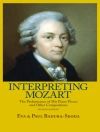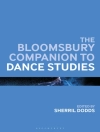Few filmmakers have taken the principle of the ‘talking picture’ so far as Eric Rohmer, the internationally reknowned director of the Moral Tales, Comedies and Proverbs, and Tales of the Four Seasons cycles. Occasionally dismissed as precious or overly literary, Rohmer’s features may leave the impression that there is more to listen to than to look at. Yet as the secretive director (b. Maurice Schérer in 1920) points out, dialogue is no less engaging than the best gunfights, and if his characters prefer discussing love to making it, they are no less the ‘heroes’ of the stories they tell.
Charges of political conservatism aside, the author of My Night at Maud’s, Summer and such period films as Perceval and the all-digital The Lady and the Duke emerges – like Hitchcock before him – as a singular inventor of cinematic forms. This critical overview, which contains an extensive bibliography and a filmography, will appeal to students of Film Studies, French Studies, and enthusiasts.
İçerik tablosu
Introduction
1. Career overview
2. Theory and criticism
3. Style and technique
4. Seriality and theme
5. Literature and history
Conclusion
Yazar hakkında
Robert Ingram is Associate Dean in the School of Languages and European Studies at the University of Wolverhampton












